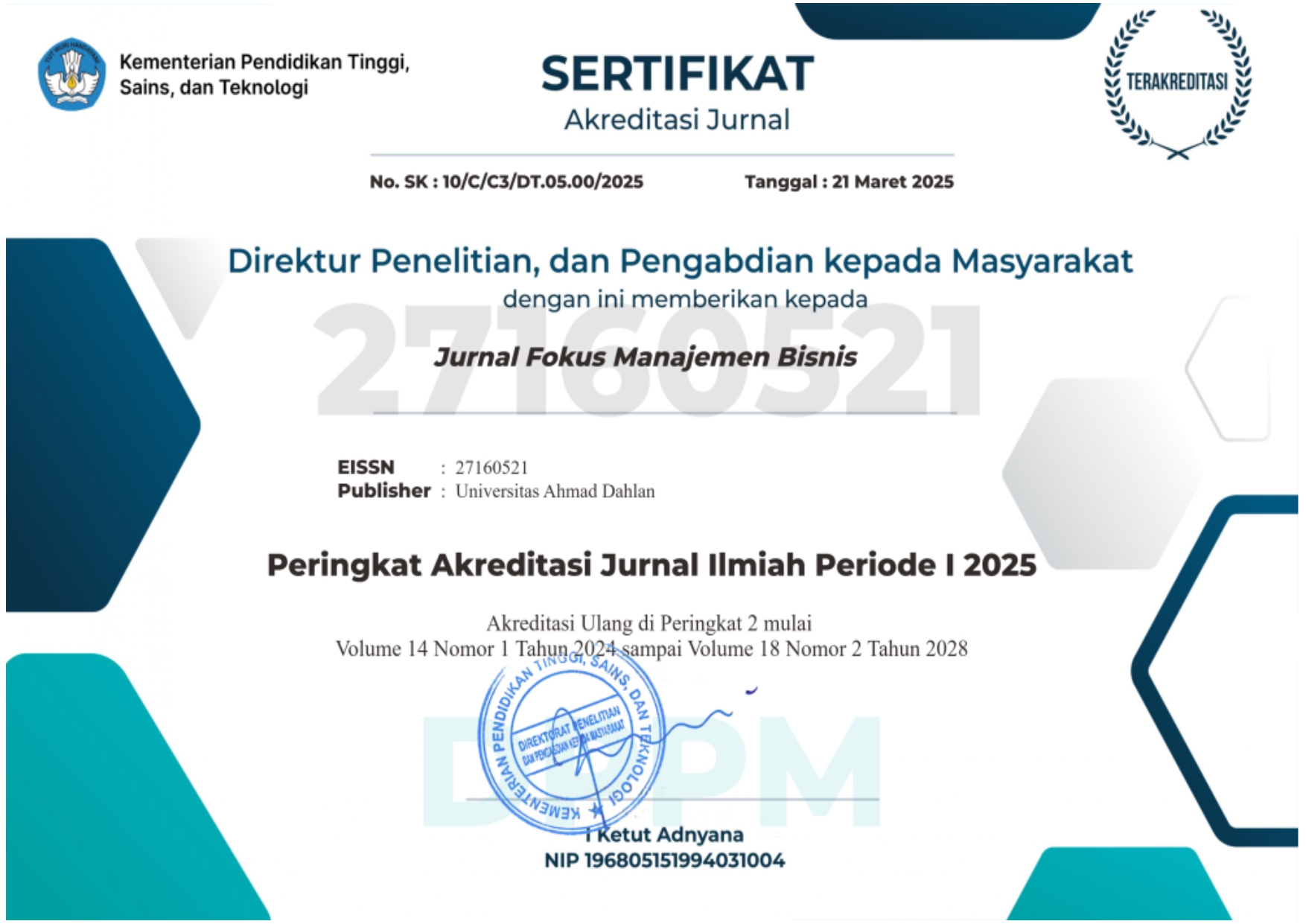ANALISIS EFISIENSI PASAR MODAL KONVENSIONAL BENTUK LEMAH DI BURSA EFEK INDONESIA PERIODE 2014-2015
DOI:
https://doi.org/10.12928/fokus.v7i2.1738Keywords:
LQ-45, Conventional Capital Market, Weak Form, Run TestAbstract
The purpose of this study is to determine efficiency in a weak form conventional capital market in Indonesia using stock price data weekly in the 2014-2015 period. Techniques in testing market efficiency forms. This weakness uses a purposive sampling technique as well as a method for data collection using the documentation method. Obtained 36 companies which is included in the LQ-45 index which is used as a research sample. Testing the hypothesis of a weak form of capital market efficiency using the run test test. The results of this study, that the conventional capital market is efficient in a weak form using stock price information for the period research. It is proven by 33 shares (91.7%) moving randomly (random) and 3 shares (8.3%) move non-randomly (not randomly). Then it can be concluded that the conventional capital market is efficient in its form weak.Downloads
Published
2020-02-13
How to Cite
Istifarida, A. L., & Asakdiyah, S. (2020). ANALISIS EFISIENSI PASAR MODAL KONVENSIONAL BENTUK LEMAH DI BURSA EFEK INDONESIA PERIODE 2014-2015. Jurnal Fokus Manajemen Bisnis, 7(2), 101–108. https://doi.org/10.12928/fokus.v7i2.1738
Issue
Section
Articles
License
Authors who publish with this journal agree to the following terms:Â
- Authors retain copyright and grant the journal right of first publication with the work simultaneously licensed under a Creative Commons Attribution License that allows others to share the work with an acknowledgment of the work's authorship and initial publication in this journal.
- Authors are able to enter into separate, additional contractual arrangements for the non-exclusive distribution of the journal's published version of the work (e.g., post it to an institutional repository or publish it in a book), with an acknowledgment of its initial publication in this journal.
- Authors are permitted and encouraged to post their work online (e.g., in institutional repositories or on their website) prior to and during the submission process, as it can lead to productive exchanges, as well as earlier and greater citation of published work (See The Effect of Open Access).






